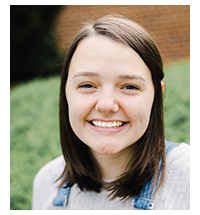
By Brielle Perry, Literary Education Programs Assistant
On a bright February morning, seventeen third graders gather at the front of their classroom. A rare winter sunlight pours through the windows, warming the carpet as they finish their snacks and buzz with excited chatter. “Are you a real author?” a student blurts out. “Are you gonna read to us?” another student chimes in. Others nod for emphasis, consumed by curiosity.
Sheri Booker, the real author in question, responds with grace. “I am a real author,” she answers, “and I brought a special book to share with you.” Sheri holds up her picture book, and seventeen pairs of eyes widen, captured by the colorful cover image of a dark-skinned girl with a crown floating above her hair. Behind her are clouds, a rainbow, and a spread of stars. Printed in deep gold letters, the title soars across the sky: Imagine a Brown Girl.
At DC Bilingual Public Charter School, an institution nestled in Northeast DC with 69 percent BIPOC enrollment, using books to highlight and explore diverse narratives is a necessity and a priority. As Sheri begins reading, the students follow along in their own copies, soaking up the story of a girl with an inner-city upbringing who imagines her way into spectacular worlds where anything is possible for her.
When the reading ends, Sheri shares the name of her other picture book, Imagine a Brown Boy. Hands start springing up around the room. “You should name your next book Imagine a Dinosaur.” The class echoes in agreement. “What about Imagine an Astronaut?” another student offers. The ideas keep flowing, a form of collective dreaming. Imagine a Castle. Imagine a Flying Car. Imagine a Gigantic Blueberry Pie. Imagine Anything.
“Can you dedicate your next book to us?” a student asks from the back row. Sheri looks at her thoughtfully, knowing the request is serious. “I can certainly think about that,” she responds. “I already write my picture books with you all in mind. I made this book because I wanted to create something that encourages young people to reach for the stars no matter where they’re growing up or what they’re going through.”
During the book signing, two girls with matching friendship bracelets inform Sheri of their plans to make a book together. Some of their classmates hunch over their desks, already scribbling the beginnings of new stories. As the visit draws to a close, Sheri parts ways with the students, leaving them with an experience to remember and no shortage of imagination.
A few days later, at E.L. Haynes Public Charter School, twenty-eight seventh graders shuffle into their English classroom, wondering why on Earth school starts so early. Standing by the whiteboard is Hugh Hunter, the author of the Futureland series, a set of middle-grade action novels that follow a determined boy, Cam Walker, and his group of friends as they navigate a futuristic theme park gone wrong. The stories draw inspiration from the real history of Black children going missing in Atlanta in the 1980s with little response from authorities.
Instead of focusing on his own books that morning, Hugh is leading a writing workshop. The space is quiet at first, some students reluctant toward writing, others lukewarm. Then, Hugh poses his first question to the group: What are one or two problems you see in the world today that matter to you? Voices begin to murmur. Soon, the room hums with conversation.
When asked by PEN/Faulkner staff to reflect on his approach to facilitating writing workshops, Hugh shared, “I try to offer low-stakes, fun, creative ways to write that involve talking, laughing and ideating with friends. I want to show [students] the different [forms] that writing can [take].”
After just a few minutes, the once hushed classroom is now bursting with ideas. The students start chatting across tables, realizing the similarities between their topics and those of their peers. Soon after, they receive their next prompt: Think of a way that magic or science could be used to address your problem. Don’t be afraid to use radical imagination.
For Hugh, thinking beyond ourselves is the key to understanding the world around us. When chatting with PEN/Faulkner staff, Hugh expressed his opinion that “stories are so vital. They offer such ample opportunities [for us] to expand our minds outside of our current realities and connect to each other across time and space.”
As the students come up with their solutions, outspoken discussion turns to muted concentration. Some who were distant when the workshop began are now scribing paragraphs onto notebook paper. One student writes a rap about using magic to stop gun violence in schools. Another has plans to solve world hunger by building a machine that multiplies food sources.
The energy of the room has changed. Something is different. As the class period ends, I can’t help but think that maybe, simply by virtue of showing up and daring to create, these students have shifted the space. That by aspiring to change the world through fearless imagination, they already have.
